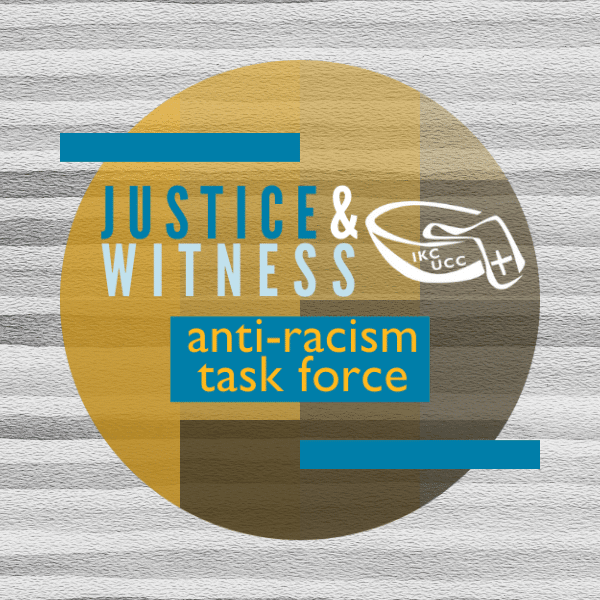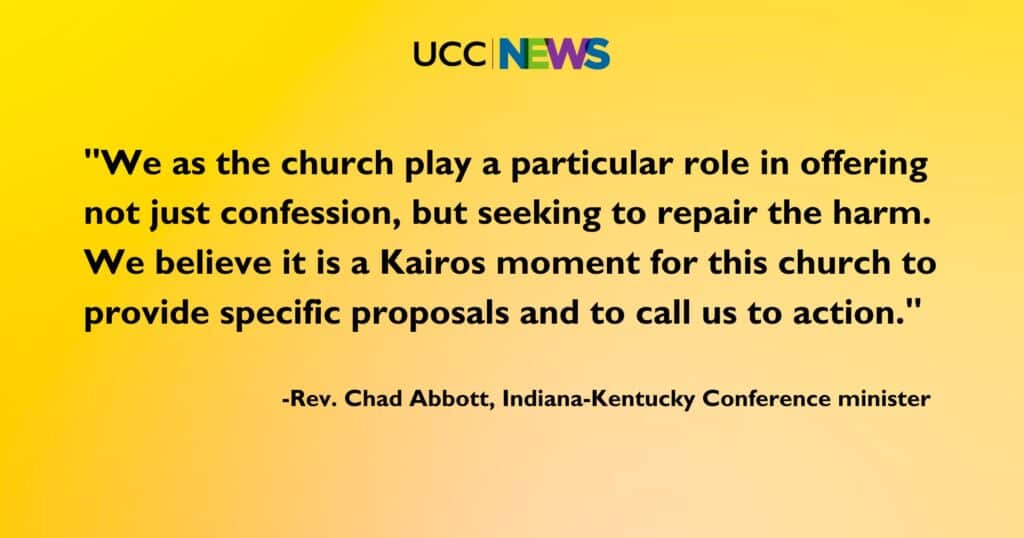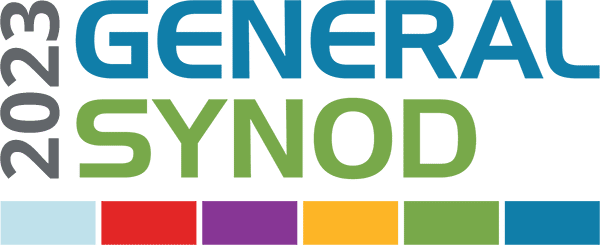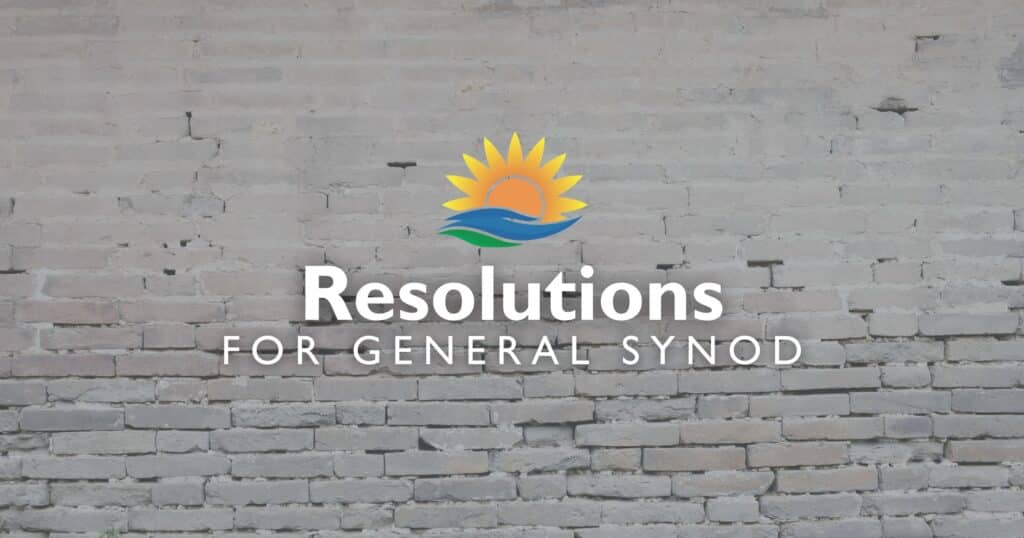Two Conferences urge Synod to study, develop reparations for African Americans
The 2023 General Synod of the United Church of Christ will consider 17 resolutions and several bylaw changes when it meets June 30-July 4 in Indianapolis. This is one in a series of articles about them. Full texts of each of the proposed resolutions are available at the General Synod website.
Advocacy for reparations gained new attention this week when U.S. Rep. Cori Bush (D-Mo.) introduced a resolution to reignite federal reparations calls for Black Americans. And in recent weeks, a California task force approved recommendations calling the state to offer reparative actions to its Black residents.
The topic will also get the attention of the General Synod of the United Church of Christ, coming in a proposed resolution from the Indiana-Kentucky and Central Atlantic Conferences.
It urges Synod to proclaim public support for federal legislation that establishes a pathway toward reparations for African Americans. It also calls for partnership across UCC bodies to inspire education and direct action toward reparations.
‘Revolutionary for this state’
This proposed resolution found its beginnings in a 2020 resolution on systemic racism passed by the Indiana-Kentucky Conference that, among other efforts, established an IKC Justice and Witness Ministries Task Force “for the purpose of studying and understanding the institutional structures within our associations that still promote, consciously or unconsciously, systemic racism.”
The task force is chaired by the Rev. Dena Holland-Neal, pastor of Trinity United Church of Christ in Gary, Ind., and Adam Hayden, who attends Friedens United Church of Christ in Indianapolis, where Synod will be held this summer.
“We’re in Indiana, and if you know any background on Indiana, this is revolutionary for this state,” said Holland-Neal. “We really have worked hard and continue to work hard to keep issues like reparations in the forefront. We didn’t want the (Conference) resolution to be one that we talked about, and it’s over. We want to make sure this is something that’s ongoing.”
That dedication to ongoing and collaborative work is what inspired members of the task force to work on getting the issue of reparations to General Synod.
‘Repair, restore, make amends’

The proposed resolution defines reparations as “a process to remember, repair, restore, make amends for wrongs, reconcile, and can never be singularly reducible to monetary terms.” It further describes the aspect of “historical reckoning involving acknowledgment that an offense against humanity was committed and the victims have not received justice.”
It includes advocacy around an historic piece of legislation, the Commission to Study and Develop Reparation Proposals for African Americans Act (H.R. 40), introduced in the U.S. House of Representatives. The bill would establish a commission to develop proposals and a “national apology” to help repair the lasting legacy of slavery.
The resolution describes this as in line with biblical themes of compensation, restitution and the Jewish notion of teshuvah, or “return” that calls perpetrators to make corrections in behavior as part of seeking forgiveness. It also states that reparations reflect Jesus’ call to “new creation.”
“My sense, how I understand my faith, is that Jesus was political and was calling for political transformation,” Hayden said. “The call to repent is about fixing systems — it’s about behavior changes. Reparations is my theological commitment as one who follows Jesus.”
A call from Conferences
As the host Conference for General Synod 34, which takes place in Indianapolis June 30-July 4, IKC finds profound meaning in originating this resolution.
“In a conference setting that has not submitted a resolution in well over two decades and in a conference that lives in the wake of the murder of Breonna Taylor, we see this as an inflection point towards transformation,” said the Rev. Chad Abbott, Conference minister. “Our Conference is clear that it is far past time that we address the complicity of our lack of willingness to repair the historic and systemic harm of slavery and racism that has plagued this country since its founding.
“We as the church play a particular role in offering not just confession, but seeking to repair the harm. We believe it is a Kairos moment for this church to provide specific proposals and to call us to action, and there is no better time than this moment in the life of the Indiana-Kentucky Conference and in the life of the United Church of Christ for us to act.”
“It’s important to see some progress and movement around what it means for the local church to be part of the reparations process and address harm taken place over centuries of enslavement,” said the Rev. Marvin Silver, associate conference minister of Central Atlantic Conference, resolution co-sponsor.

CAC also sponsored a separate resolution for Synod encouraging local churches to confront white supremacy. The Conference is hopeful about building collaboration in this work across the UCC, like this work with IKC, he said.
‘Centuries-long work’
This is not the first time the topic of reparations has been raised before Synod. A 2001 resolution called for study on reparations and slavery and resulted in a UCC study and discussion guide for local churches, Conferences and Associations to engage with historical and contemporary issues around the enslavement of African-descended people.
The resolution proposed to this year’s Synod notes that, despite these and other UCC initiatives, not enough engagement has taken root across the wider church. Still, it describes the new resolution as consistent with the UCC’s “language, direction and call” over more than three decades to renew a commitment to the struggle.
The IKC task force envisions inspiring action that will shape the future church and have broader impact.
“One of the things about the United Church of Christ is that we tend to stand in the forefront of issues that are sensitive to other people and other denominations,” said Holland-Neal. “I was at the Synod when we passed the Open and Affirming resolution. To see that whole thing play out — we had all different types of security there because they didn’t know what would happen when the UCC did that — that encourages me to know that I’m part of a denomination who is not afraid to stand up for issues that everyone else walks away from.
“Right now, in this country with all we face, with (the deaths of) George Floyd and Sandra Bland and numerous others happening still on a daily basis, it encourages me to say I’m involved in a denomination that looks at it head-on and does not shy away.”
“I hope this resolution is another way that the wider body will live out its values and reignite whatever the future church looks like,” Hayden said. “Reparations has got to be a wider part of that. Let’s be a beacon that joins this centuries-long work of reparative justice. I hope that we in Indiana-Kentucky Conference are part of the good troublemakers who force the wider body to say, ‘Let’s go! Let’s get serious!’”

The United Church of Christ’s 34th General Synod will be held June 30-July 4 in Indianapolis. For registration, programming, information and more, visit generalsynod.org.
Content on ucc.org is copyrighted by the National Setting of the United Church of Christ and may be only shared according to the guidelines outlined here.
Related News
A Prophetic Call for Justice and Peace in Palestine
The executive leaders of the United Church of Christ have issued the following statement...
Read More‘Love is Greater Than Fear’: Regional Youth Events get to the heart of gospel message
United Church of Christ teens attending this summer’s Regional Youth Events (RYE) are...
Read MoreUCC desk calendars available to order now
Prepare for your day, month and year with the United Church of Christ desk calendar —...
Read More


